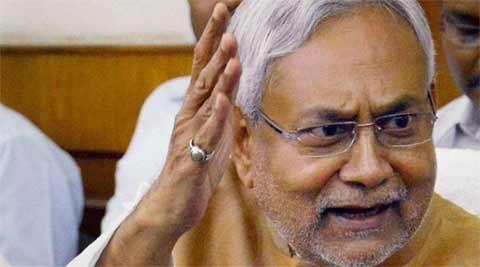Opinion Brewing trouble
Nitish Kumar should not turn his misguided prohibition policy into a tug of war between legislature and judiciary.

Keeping one step ahead of the law cannot possibly be a credible political strategy, but the government of Nitish Kumar in Bihar seems to have committed itself to this radical path, leveraging legislative independence to counter legal intervention. Last week, the Patna High Court struck down the Bihar Excise (Amendment) Act, 2016, declaring illegal the April 5 notification which had banned the production, storage and sale of alcohol in the state. Prohibition was effectively countermanded, since the very heart of the act had been ripped out. But on Gandhi Jayanti, Kumar retaliated by notifying the Bihar Prohibition and Excise Act, 2016. It retains some draconian features of the old law which the high court had declared illegal. In a separate action, the government will appeal in the Supreme Court against the strike-down in the high court. In spite of the court, Kumar has maintained his misguided commitment to prohibition. In the few days when it was not in force, Bihar faced only one interesting question: What was the status of the 13,000-odd people who had been arrested for violations? Would they have to be let off en masse?
The court had found prohibition in Bihar to be ultra vires of the Constitution and unenforceable, noting that criminalising possession was arbitrary, and that the penalties attracted were so draconian that they smacked of a police state. For instance, prohibition had introduced the legally suspect notion of guilt by association. All adults in premises where liquor was used or stored were declared to be culpable, on the ground that the offence could not have been committed without their knowledge. Similarly, entire villages where illicit stills were discovered were threatened with punitive action. Guilt by association and collective punishment are primitive political strategies designed to overawe whole communities. They have no place in the codex of a democratic state. If the same logic were applied to other crimes and misdemeanours, a single pickpocket could send off an entire village to jail. The possibility for perfectly legal absurdity is endless.
Prohibition as a permanent feature of state policy does not sit well in a democracy, either. The nanny state may be invoked as a local, temporary measure to stave off social crises, where alcohol abuse assumes alarming proportions and elicits public revulsion. Kumar introduced prohibition to appeal to women voters, and on Sunday he spoke of villages where mayhem used to rule in the evenings, and which are now at peace. This may be true, but the state cannot keep the peace forever with a punitive law. Democracy is founded on choice — even the choice of what may be imbibed. Any infringement of choice should be strenuously resisted by the courts.





